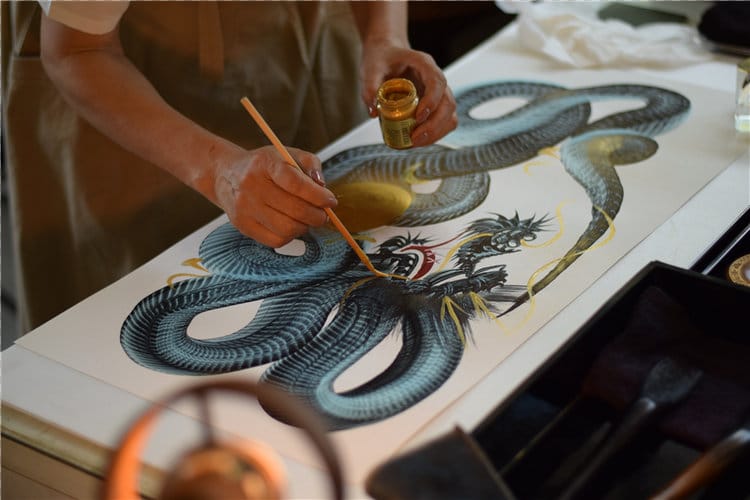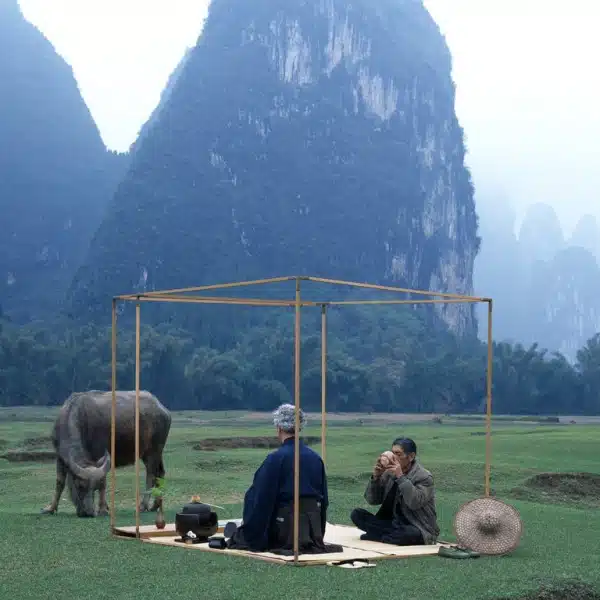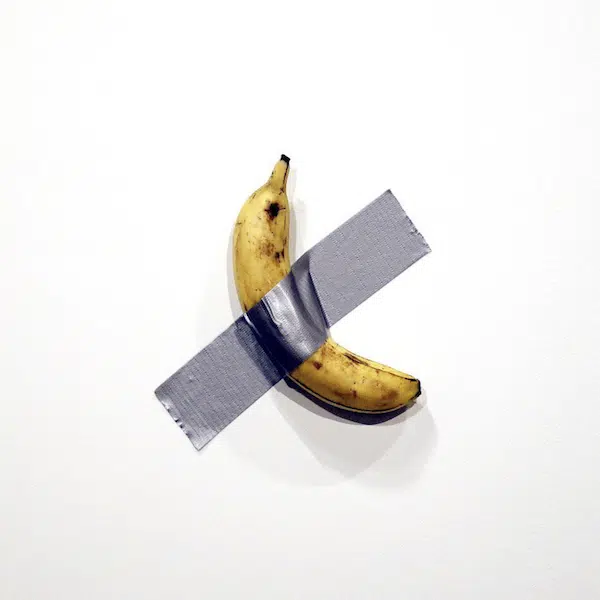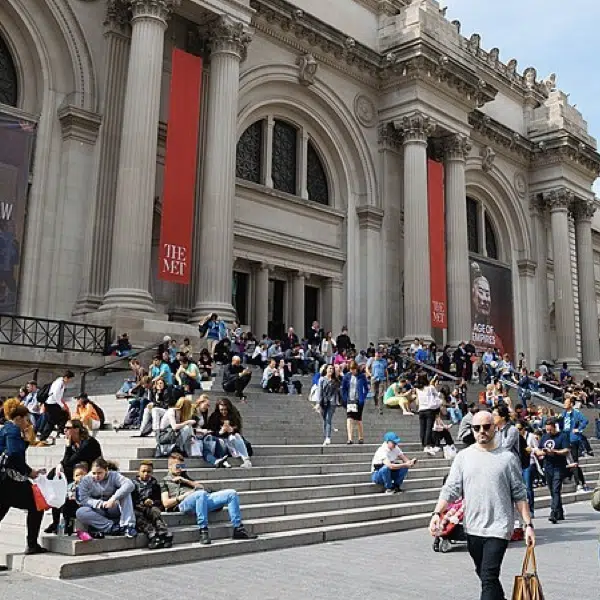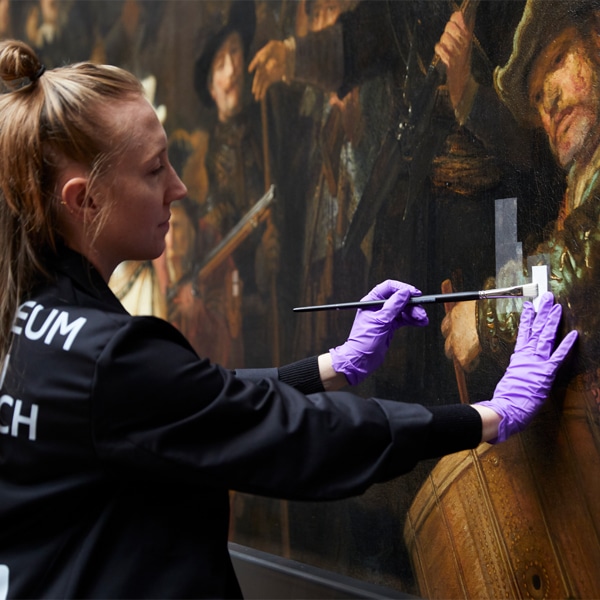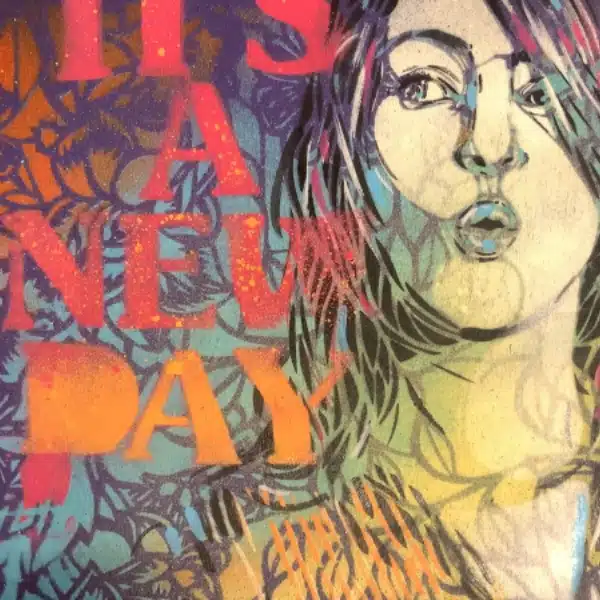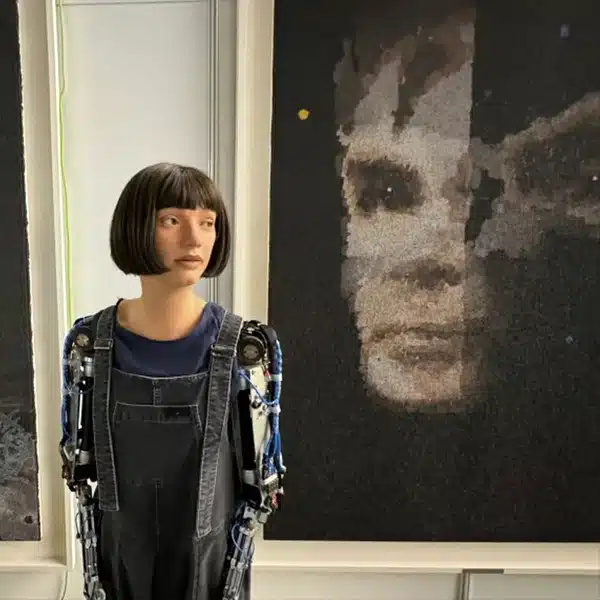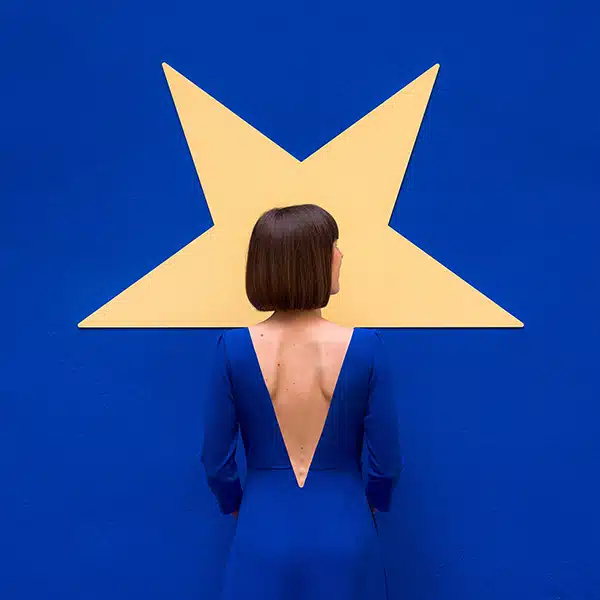The one stroke painting technique is a mesmerizing feat to behold, requiring a deft hand that slides across the page. In the Nikko region of Japan, just outside Tokyo, one family has been honing their unique craft for generations. In the Takase family, there exists only one subject for their special artistic gift—the lucky dragon.
For centuries, dragons have been signs of good fortune in Japanese culture. Thus was born a special form of sumi-e called ippitsuryu. Ippitsu—or sometimes referred to as hitofude—means dragon, while ryu means single stroke. The current head of the workshop, Fumiko Takase, is the third generation to carry on the tradition. Her siblings also practice the art form, and she is training her son.
As with all forms of sumi-e, an ink wash and brush that is similar to what is used in calligraphy are the main tools. Here, the emphasis is on the beauty of the brushstroke. The stroke should capture the essence and spirit of the painted subject, with a single stroke adding to its majesty.
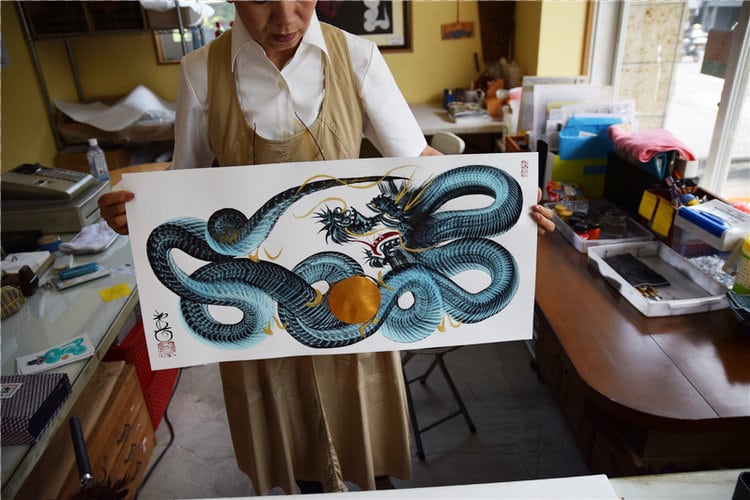
By varying pressure and brush position, never lifting from the page, the ink wash takes form. Carefully, she moves her hand, snaking around to form the twisting body of the dragon. It's a skill that takes incredible precision and patience. Small details, such as whiskers and claws, are added later.
But, the practice is not without controversy. According to the Takase family, their technique was stolen by a rival studio run by the neighboring Kousyu family. With workshops steps from each other, it certainly makes for an interesting twist on the single-stroke dragon.
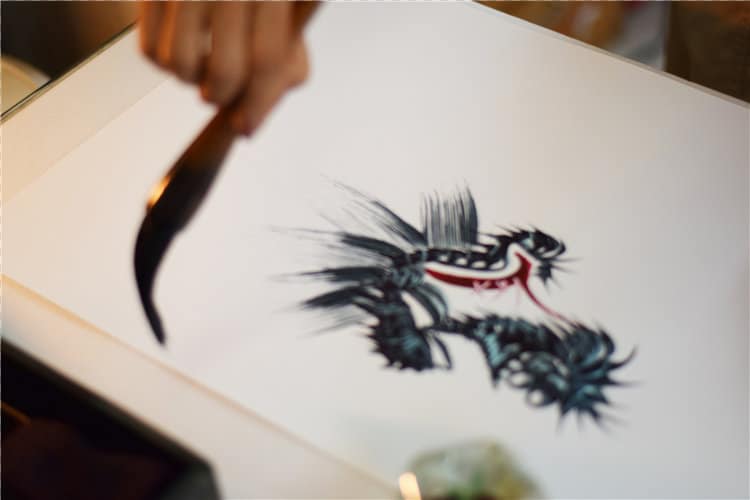
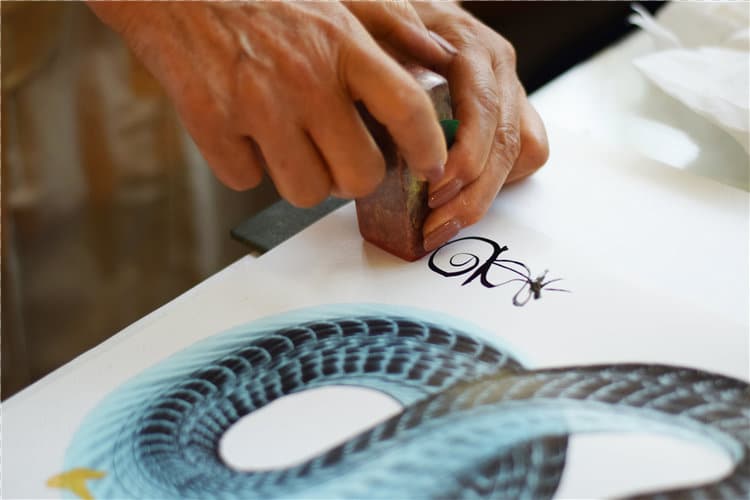
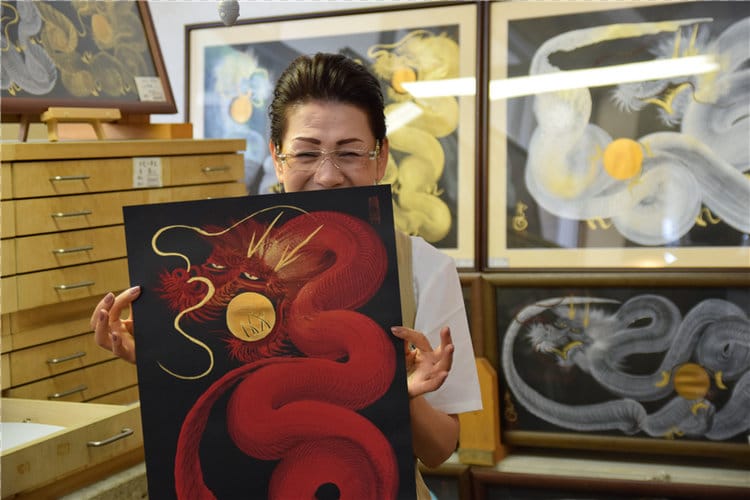
Watch Fumiko Takase perform her incredible one stroke painting technique.
The rival Kousyu family also have many ippitsuryu videos. Which do you prefer?
h/t: [Spoon & Tamago]
